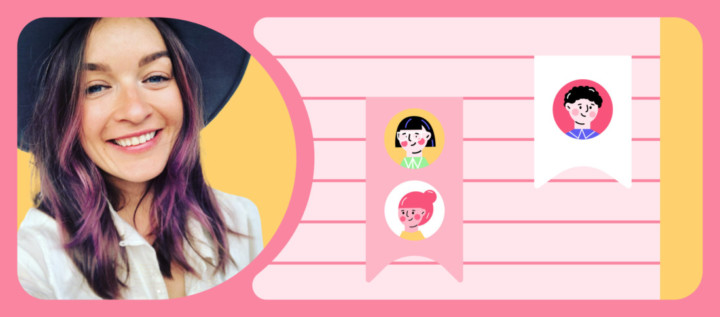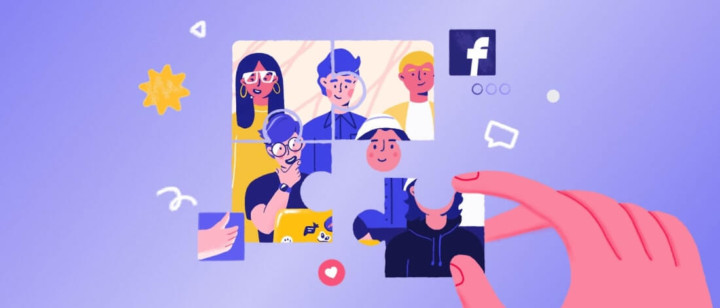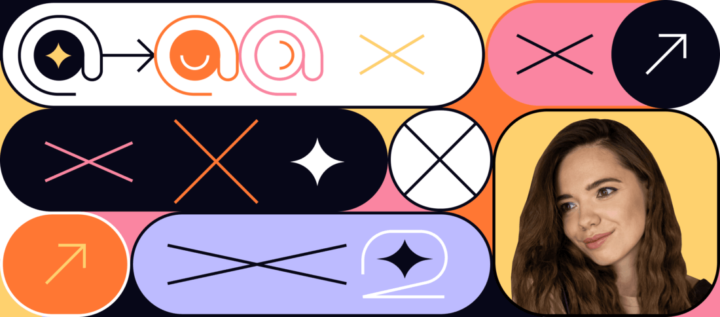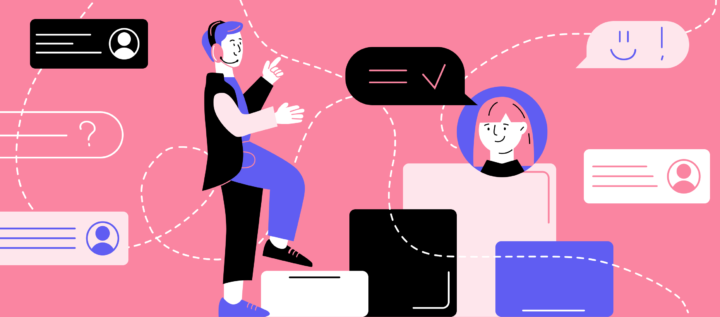Top 8 Tips to Achieve an 87% Quiz Conversion Rate
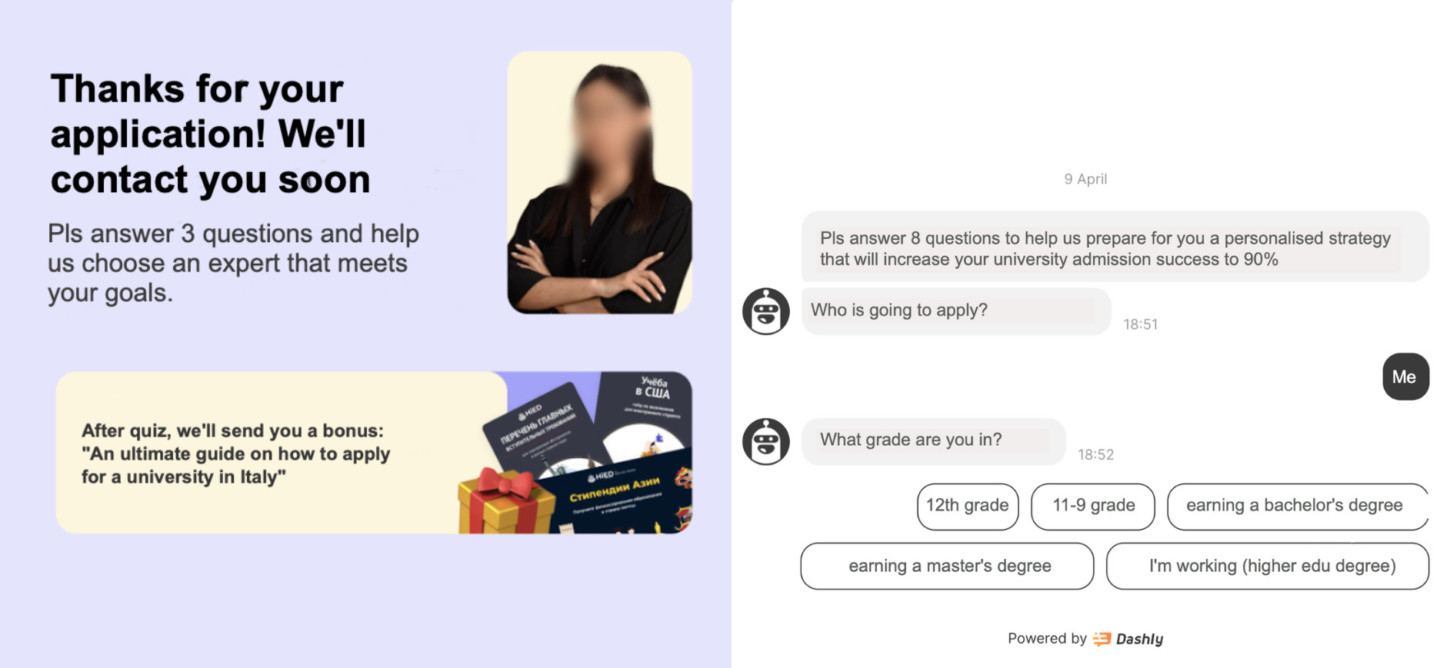
A quiz isn’t just a great onboarding tool; it’s also an effective method for scoring and qualifying leads. Spreading questions over multiple screens, quizzes convert 30% better than forms! Despite this, I often hear: “I don’t believe in quizzes” or “I tried it, and it didn’t work.”
My answer is — you just didn’t know all the nuances 😉
My team uses this tool to qualify clients before meetings. Often, we put it at the beginning of a new product’s pilot scenario.
Through experiments, Vadim, our Product Growth Manager, achieved an 87% quiz completion rate!
How?
He shared eight proven tips for boosting your quiz completion rate👇
1️⃣ First Screen: This is where most people drop off. To keep their attention and motivate them, add content with these elements:
- Part 1: Show Value: Explain why they should take the quiz. For example: “Answer a few questions to help us match you with the right consultant for your needs.”
- Part 2: Set Expectations: Indicate how long the quiz will take and what happens next. For example: “Answer 3 questions to help us match you with an expert. This will take 3 minutes. Afterward, we’ll introduce you to your coach and schedule a meeting.”
- Part 3: Incentivize: Offer a bonus or discount. In one pilot, a mystery bonus worked well: “Complete the quiz to receive a nice bonus.” We revealed the bonus after the quiz. In another pilot, we offered a guide or a discount: “After completing the quiz, we’ll send you a guide on how to prepare for applying to U.S. universities” or “Get a 10% discount on our course.”
Mix these elements as needed. Here’s an example from a qualification quiz:
It starts with an explanation: “We will contact you soon” (specify the time frame for better results, e.g., within a day). Then, explains how long the quiz takes and its purpose and offers a bonus description at the end.
Adding a person’s photo can also help. Studies show that images, especially of people, enhance emotional engagement and memory.
2️⃣ Question Count: The optimal number of questions varies by product and audience. Our experience shows that quizzes with 5 to 30 questions can achieve similar completion rates.
3️⃣ Answer Choices: Avoid overwhelming users with too many options. Miller’s Law suggests people can hold 3 to 7 items in their attention at once. Use this when designing your quiz options.
4️⃣ Predefined Answers: Provide answers as buttons. It’s easier to click a button than type an answer.
5️⃣ Motivate During the Quiz: Add “Information Context” to reinforce value before or after tough questions. For example, before asking for income, health, or private life info, explain why it’s needed: “This helps us recommend the right package for you.”
Here’s how it might look in action:
Additionally, “Information Context” can act as entertaining breaks between series of answers, keeping attention high. For example, after a favorite exercise question: “Cool! Now we know you love pull-ups. By the way, we have a coach who invented a new pull-up technique. We’ll tell you about it in the meeting.”
Limit “Information Context” to about 30% of the quiz, placing them before the most sensitive questions. Also, consider adding a widget showing quiz completion progress.
6️⃣ Personalization: Use any known info about the person (name, age, etc.) to personalize the quiz. Address them by name and tailor questions to their interests based on previous answers. Provide personalized recommendations or results at the end.
7️⃣ Purposeful Questions: Each question should serve a specific purpose. Focus on questions crucial for qualifying and prioritizing leads. In B2B, this might include goals, budget, and role in the company. Ask important questions more than once in different forms to filter out unqualified leads.
Use proven customer insights for quiz questions. Sales teams are a great resource for this information. Test hypotheses to find new segments.
8️⃣ Clear Next Steps: At the end of the quiz, clearly outline the next steps. For example, invite them to continue the conversation via WhatsApp or email. If they’ve provided contact info, tell them the promised bonus (guide, promo code, webinar link) is on its way.
Experimenting with quizzes is part of how we double the ROMI of advertising channels in new product pilots. We’re open to taking on TWO more clients for joint work. If your business meets these criteria:
- Operates in international markets;
- Has an inbound sales funnel generating leads;
- Has a sales team processing these leads;
Then you are our ideal client. Contact me on team@dashly.io for more details.
Read also:
7-Step Blueprint for Success with the Inverted Sales Funnel
The Ultimate Guide to Sales Funnel Conversions: Top Stats and Tips for 2024



![The ultimate guide to growth marketing in 2025 [explained by a growth hacker]](https://www.dashly.io/blog/wp-content/uploads/2023/04/The-ultimate-guide-to-growth-marketing-explained-by-a-growth-hacker-720x317.png)
